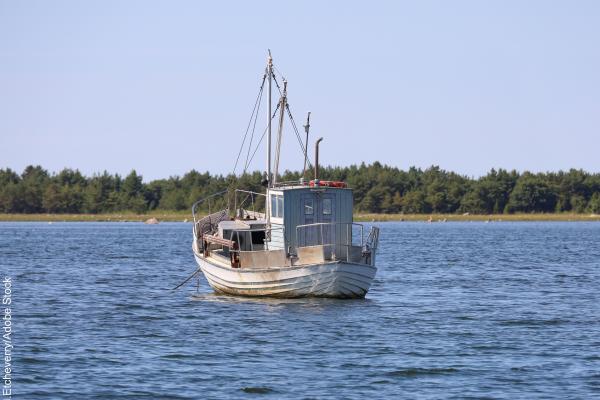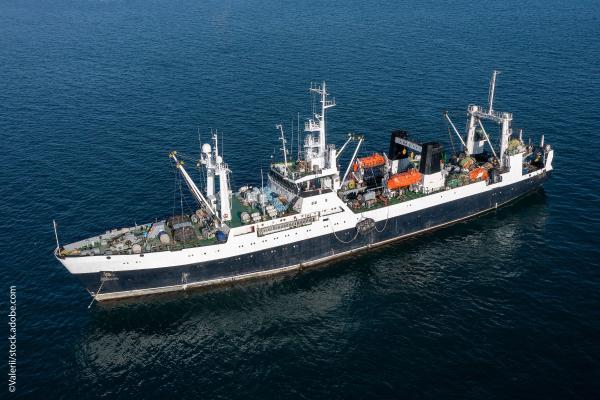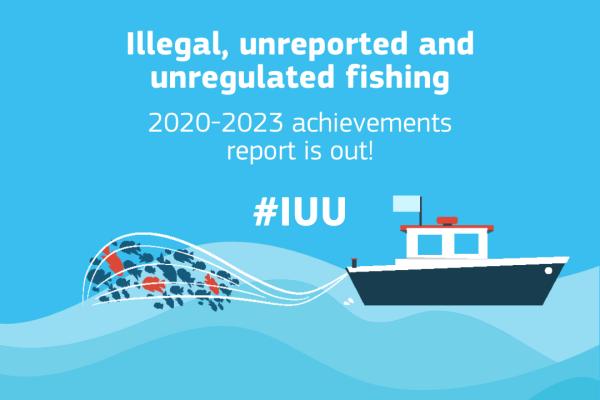Overview
Discarding constitutes a substantial waste of resources and negatively affects the sustainable exploitation of marine biological resources and marine ecosystems and the financial viability of fisheries.
Globally, it is estimated that between 7 and 10 million tonnes of commercial fisheries catches are discarded annually. The levels of discards vary across regions, species and fisheries and there are different reasons why fishers discard.
Fishers discard because
- the fish is smaller than the legal size
- the fisher does not have a quota for it
- the fish is of low market value
- the fish is damaged
- it is prohibited to catch that species
The EU’s common fisheries policy aims to put an end to this wasteful practice. The landing obligation has been active since January 2019 to reduce discards by promoting selective fishing and avoiding unwanted catches.
Landing obligation
The landing obligation was introduced in 2015 and has been fully in force since January 2019. Its goal is to eliminate discards by encouraging fishers to fish more selectively and to avoid unwanted catches.
Rules related to the landing obligation stipulate that
- all catches of species regulated through catch limits (such as mackerel) or minimum size (such as anchovy in the Mediterranean) should be landed and counted against the fishers’ quotas
- undersized fish caught and landed should not be used (sold) for direct human consumption, but for products such as pet food, fish meal, pharmaceuticals, and food supplements
- producer organisations have a duty to help their members find adequate outlets for undersized catches, without promoting the creation of a market for them
- EU countries also have the obligation to assist fishers by facilitating the storage of undersize fish and finding possible outlets
Intense collaboration and exchanges between EU countries, fishers, NGOs, scientists, the European Parliament, the European Fisheries Control Agency (EFCA) and the Commission, have helped to reach a better understanding and, in some cases, a common understanding of the challenges and solutions related to the landing obligation.
This is particularly noticeable in the collaboration on the reasons for discarding choke species and the tools to be used to address these cases, for example with the choke mitigation tool developed by the North Western Waters Advisory Council.
Exemptions to the landing obligation: delegated acts
In some cases, for example mixed fisheries, it is very difficult for the fishers to avoid all unwanted catches. Mixed fisheries are fisheries in which more than one species is present and where different species are likely to be caught in the same fishing operation
To help the implementation of the landing obligation in some fisheries, EU countries may develop and submit, after consulting with the Advisory Councils, joint recommendations with specific implementation provisions to be adopted by the Commission as delegated acts.
These delegated acts provide some flexibility as regards the landing obligation, for example where unwanted catches are very difficult to avoid, lead to disproportionate costs or have a high survivability rate.
This flexibility was put in place to take into account the nature of some (complex) fisheries, as well as the phenomenon of choke species – a species for which the available quota is exhausted before the quotas of (some of) the other species that are caught together in a (mixed) fishery are exhausted.
The adoption of these measures and exemptions should be based on multiannual plans.
Aside from high survivability and de minimis exemptions, predator damaged- and prohibited species are also exempted from the landing obligation.
There are delegated regulations in place specifying the implementation of the landing obligation
Funding possibilities
The European Maritime, Fisheries and Aquaculture Fund (EMFAF) provides funding to contribute to the implementation of the landing obligation. It supports innovation and investments that contribute to the implementation of the landing obligation, with a higher aid intensity rate than the one that applies to other operations (75%). This covers investments in selective fishing gears, the improvement of port infrastructures and the marketing of unwanted catches.
It can grant a maximum aid intensity of 100% to the design, development, monitoring, evaluation and management of transparent systems for exchanging fishing opportunities between EU countries ('quota swaps'), in order to mitigate the 'choke species' effect caused by the landing obligation.
Control mechanisms
Despite all the efforts, the Commission’s audits and the initiatives of the European Fisheries Control Agency (EFCA) indicate a general lack of compliance with the landing obligation.
Possible solutions
- part of the solution should come from new and innovative control tools, such as closed-circuit television (a Remote Electronic Monitoring tool). This tool is included in the Commission’s proposal for a revised fisheries control system.
- the regulation on technical measures introduces some flexibility for EU country’s regional groups to introduce measures to minimise unwanted catches by improving selectivity
- the Commission can adopt rules to set up control restrictions on gear construction, gear use and restricted areas
- the Commission can also adopt rules on pilot projects that aim to develop a system of full documentation of catches and discards
News

- Press release
Today, the European Commission has adopted an amendment to the State aid Temporary Crisis and Transition Framework (TCTF) to prolong by six months certain provisions of the Framework aimed to address persisting market disturbances specifically in the agriculture and fisheries sectors.

- News announcement
The EU was granted fishing opportunities for chub mackerel at the North Pacific Fisheries Commission (NPFC) annual session, held from 15 to 18 April 2024 in Osaka, Japan. Chub mackerel is an important commercial species and EU fishing fleet will be allowed to participate in this NPFC fishery.
- 2 min read

- News announcement
The European Commission has just published the 2020-2023 report on its activities to prevent, deter and eliminate illegal, unreported and unregulated fishing (IUU fishing), in accordance with the IUU Regulation.
- 3 min read
Media
Euronews Ocean: Sustainable fishing is 2020 target as stricter regulations improve stocks
Fishermen across Europe are investing in selective nets that allow them to better target their fishery and reduce unwanted catches. The landed fish that is not suitable for direct human consumption will not go to waste either. It can be used to produce fish meal, fish oil, pet food, food additives, pharmaceuticals and cosmetics.
